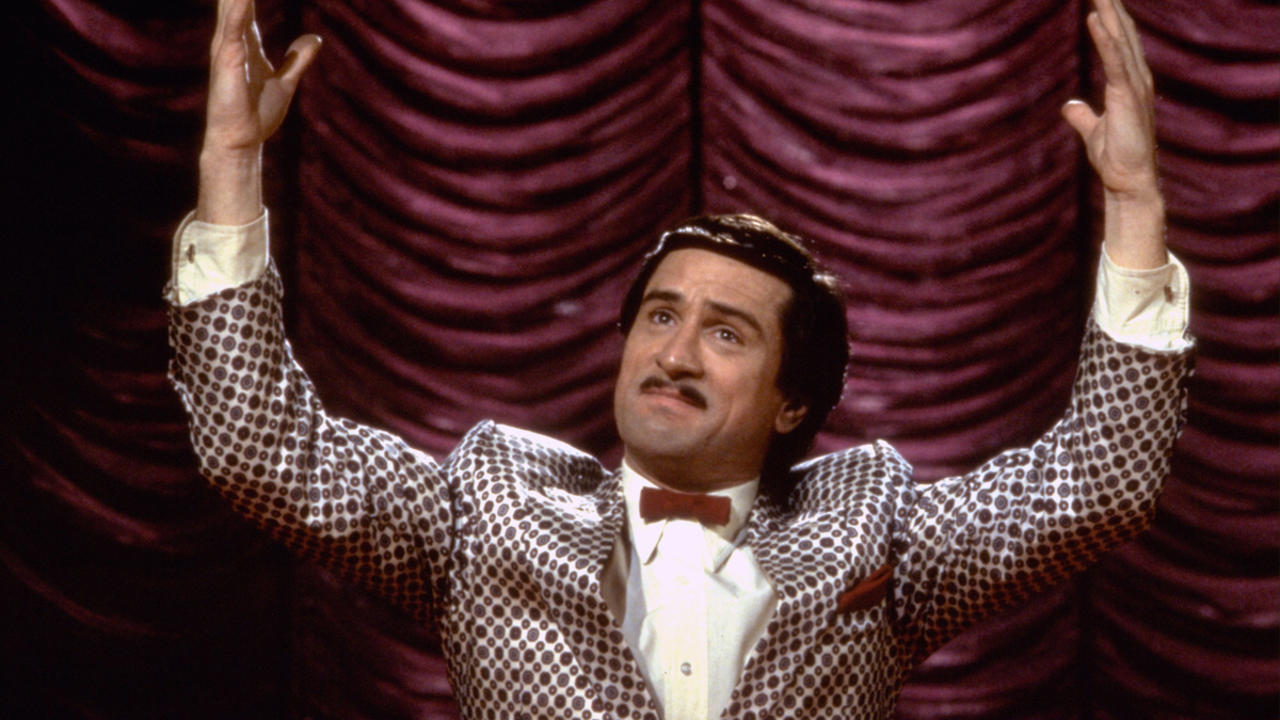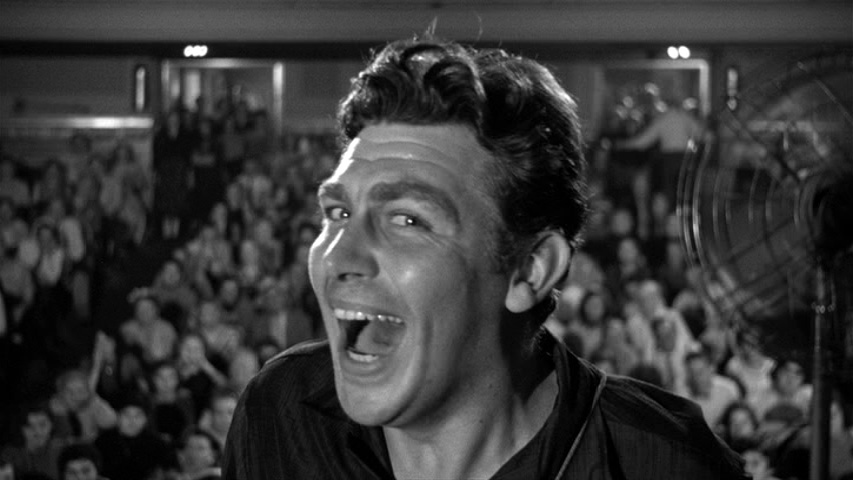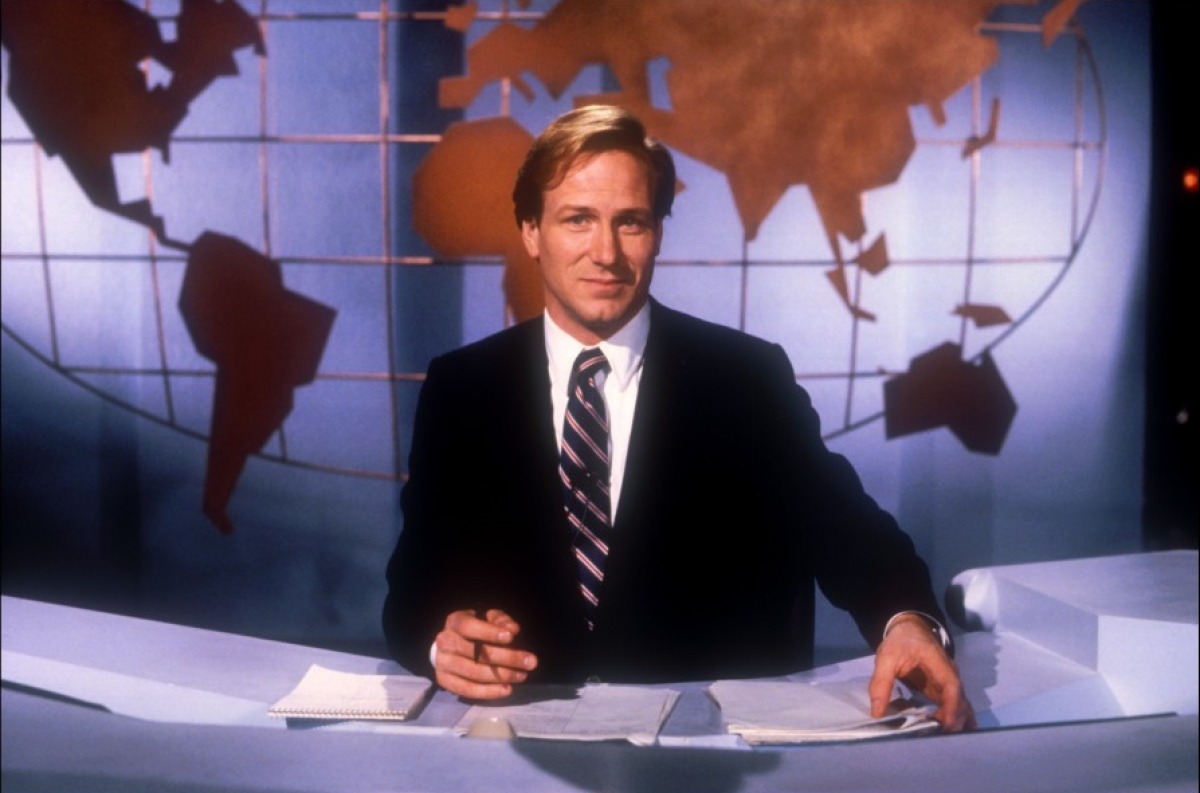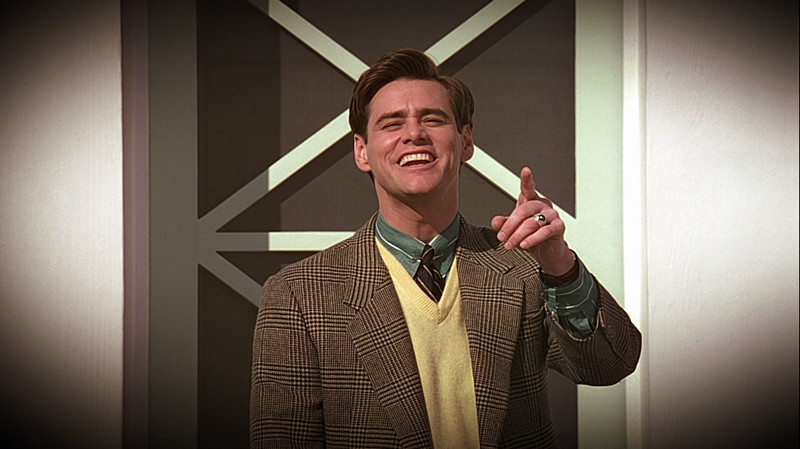5. The King of Comedy (Martin Scorsese, 1982)

“The King of Comedy” and “Taxi Driver” are an artistic form of yin and yang, or better, two sides of a coin inheriting tragedy and comedy. Both are films by Martin Scorsese starring Robert De Niro playing a mentally unstable loner, albeit one with a goal and one without. Jerry Langford (Jerry Lewis) is the host of the most successful late night show on television.
One night, as he leaves the studio, a crowd of fans blocks the way to his car. He gets help escaping by one of his biggest admirers, Rupert Pupkin (Robert De Niro). Pupkin claims to be a comedian himself and convinces Jerry to grant him a meeting in the following days.
First his assistants refuse him entry, but when he manages to make his tape heard, they witness his disastrous act. This urges the assistant to politely refuse him, which Pupkin rigorously denies. Seeing all doors closed to make an appearance in Langford’s show, Pupkin kidnaps him and blackmails the studio to show him and his comedic act at the beginning of the show.
“The King of Comedy” explores a self-important celebrity-driven society through its foolish main character. As Pupkin puts it, “better to be king for a night than schmuck for a lifetime.” De Niro’s devoted and persisting acting conveys a deliberate uncomfortable feeling of pity and shame for his character. The best performance though is reserved for Jerry Lewis, who gives the most sophisticated dramatic portrayal of his career.
The biggest joke of the movie is the main character himself, whose name is never spelled right by any other character, thus the ending that culminates with his performance, which comes as a blissful surprise. The audience is led to believe they won’t be witnessing the act, let alone foreseeing its outcome in quality.
4. A Face in the Crowd (Elia Kazan, 1957)

As probably one of the most prominent film directors of the 50s, Elia Kazan proves himself again as a stern actor, filmmaker, and visionary. Not only is this film a prophetic foreshadowing of what was to be the campaign of John F. Kennedy, but it’s also still as relevant today. Patricia Neal (Marcia Jeffries) is the host of “A Face in the Crowd”, the local radio show on KGRK.
In search of talented everyman to interview for her show, she visits a rural prison in Arkansas. There she comes across a drunken drifter named Larry “Lonesome” Rhodes (Andy Griffith), who agrees to a deal with the sheriff (Big Jeff Bess) that sees him free in the morning, in exchange for him singing a song for her.
Lonesome becomes a huge overnight success, which earns him a television show in Memphis, Tennessee. His following and influence grows excessively, to the point that he becomes the face and driving force of the campaign of presidential candidate Senator Worthington Fuller (Marshall Neilan).
Released during the early ages of television, “A Face in The Crowd” is the first film to point out the tremendous and ominous power television has, especially when used as a political tool to manipulate a lazy but information-hungry electorate.
Andy Griffith’s character is the perfect example of the renegade that succeeds in having the “American Dream”, which makes him not only part of the corporate system he relentlessly opposed, but which turns him into a power hungry propagandist.
3. Broadcast News (James L. Brooks, 1987)

Most people know James L. Brooks as a filmmaker, and some know him as one of the original executive producers of “The Simpsons”, but only a few know that he was a writer for CBS News from 1964-1966. It is fair to suggest that he is one of the reasons why it is hailed as the most accurate depictions of how TV news operates.
The Washington, D.C. office of a national television network just hired Tom Grunick (William Hurt), a telegenic former sports journalist, as their new anchor. Tom is attracted to Jane Craig (Holly Hunter), a pragmatic and very efficient but neurotic producer, who is obsessed with her work. Jane is also attracted to Tom, but her mistrust of him as well as the constant attention needed by her best friend, a gifted writer named Aaron Altman (Albert Brooks), is a hindrance.
In comparison to most films on this list, “Broadcast News” is more of a satirical romantic comedy centered around a love triangle than a critique on television, media and politics. Brooks is notorious for tweaking the best of his actors, most prominently by casting actors to play characters out of their comfort zone. No matter how many big stars there are or how much onscreen talent there is (and there is a lot in this film), never has a performance fallen flat on a Brooks production.
2. The Truman Show (Peter Weir, 1998)

Director Peter Weir originally planned for projectionists to stop the film at one point during all screenings, cut to video of the audience shot by cameras that were installed in every theater, then cut back to the movie. After a bizarre accident, which involves a theatrical light falling from the sky, leaving Truman Burbank (Jim Carrey) scared to death, he starts witnessing peculiar occurrences surrounding his everyday life. Even his daily routine starts to look very calculated and precise.
In reality, Truman Burbank, to his ignorance, is the star of a reality show created and produced by Christof (Ed Harris), which is the most watched event on television around the world. Truman was adopted by the studio as an infant and placed in this giant dome mimicking a functional city filled with actors playing his family, neighbors, co-workers and various love interests during the last 30 years of his life.
While it is a fair analogy to call “The Truman Show” a perfect satire of an individual Orwellian “Big Brother”, it could also be interpreted as a modernized expansion of Plato’s allegory of the cave. Although, for the latter to be a valid claim, the resolution of the film would need to go beyond its ambiguous ending.
1. Network (Sidney Lumet, 1976)

Howard Beale (Peter Finch), after serving for 25 years as a news anchor for UBS News, is told that he is going to be forcefully retired in two weeks because of low ratings. Allegedly accepting his fate, Beale goes on the air for his second to last show and starts cursing and announces that he is going to kill himself.
First, the executives want him lynched, and only after a noticeable increase in ratings do they give him another shot, which producer Diana Christensen (Faye Dunaway) explores by turning the deranged anchor into a spectacle where he reputedly exposes corporate interest while in reality serving their cause.
Hailed by critics and those alike as the best film about television, Paddy Chayefsky’s screenplay for “Network” is perhaps more relevant today than it was 40 years ago. In our generation of YouTube, fake news shows, opinion news shows, Fox News and reality TV, you witness how much profitable anger accumulation at a system, while being part of that aforementioned system, really can be.
Sidney Lumet is the one of the most efficient filmmakers at directing actors. “Network” is only the second film to receive three acting Oscars. Ned Beatty once remarked, “I worked a day on ‘Network’ and got an Oscar nomination for it”. Beatrice Straight’s screen time is only five minutes and two seconds, making her portrayal the briefest performance ever to win an Oscar. Peter Finch is the first actor to receive an Oscar post-mortem.
Author Bio: Zgjim Terziqi is a film school graduate screenwriter and director from Kosovo. As an autodidactic child, he learned fluent English and German, by watching films in the respective language.